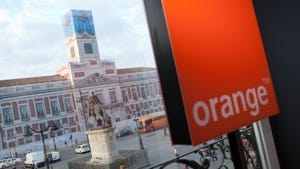O2 and Vodafone double down on network sharing deal for 5GO2 and Vodafone double down on network sharing deal for 5G
Network sharing deals are not new in the UK, but with O2 and Vodafone evolving their existing relationship to active infrastructure, the partnership certainly has a new mission.
July 24, 2019

Network sharing deals are not new in the UK, but with O2 and Vodafone evolving their existing relationship to active infrastructure, the partnership certainly has a new mission.
Announced today, O2 and Vodafone have agreed to share 5G active equipment, such as radio antennas, on joint network sites across the UK. The approach should accelerate 5G deployments in the areas where infrastructure investments are not as commercially attractive, though the 23 largest cities have been excluded from the deal.
“Today is an important step in demonstrating our commitment to invest for the future, with mobile connectivity one of the UK’s most powerful opportunities to strengthen the economy and improve the lives of British people,” said O2 CEO Mark Evans. “This agreement will enable us to roll-out 5G faster and more efficiently, benefiting customers while delivering value for our business. It also importantly allows us to utilise the spectrum we acquired in the last auction very effectively.”
“We’re driving our 5G roll-out forward with this agreement, and taking our customers, our business and the whole of the UK with us,” said Vodafone CEO Nick Jeffrey. “Greater autonomy in major cities will allow us to accelerate deployment, and together with active network sharing, ensures that our customers will get super-fast 5G in even more places more quickly, using fewer masts. We can boost capacity where our customers need it most so they can take full advantage of our new unlimited plans.”
Prior to this announcement, the duo were already in partnership through the Cornerstone Telecommunications Infrastructure (CTIL) joint-venture. This company effectively acquires and manages passive infrastructure across the country, enabling the pair to share costs on some of the most expensive aspects of network deployment; site acquisition, local government bureaucracy and civil engineering.
This new agreement takes the relationship one step further. Although many telcos around the world believe active equipment is a means to differentiate experience, the pair are putting aside their squabbles to grow the network across all regions in the UK. For those areas where ROI is more difficult to realise, spectrum assets will be the only differentiating factor.
In the larger, more densely populated environments, the duo will remain competitive. In 23 large cities, covering 16% of combined cell sites, all assets will be separate. In cities such as London, Manchester or Liverpool, profitability has not been difficult to demonstrate through network expansion, such is the number of subscribers in such a small geographical zone.
Although we are slightly surprised by the concept of sharing active equipment, it is a logical path for the two telcos to take. Spectrum assets should be enough to deliver some sort of differentiated experience, and if the telcos want to move up the value chain, they will need to reconsider their thoughts on the delivery of data.
Connectivity revenues will remain the core business, but 5G presents an opportunity to create a new role in the ecosystem and deliver more value-added services. To enable this, a new mindset to network infrastructure has to be acquired to free up revenues for other areas. This is not the only advantage of network sharing deals, but the intelligent reallocation of funds could allow MNOs to transform from ‘Communications Service Providers’ to ‘Digital Service Providers’.
About the Author
You May Also Like










.png?width=300&auto=webp&quality=80&disable=upscale)


_1.jpg?width=300&auto=webp&quality=80&disable=upscale)